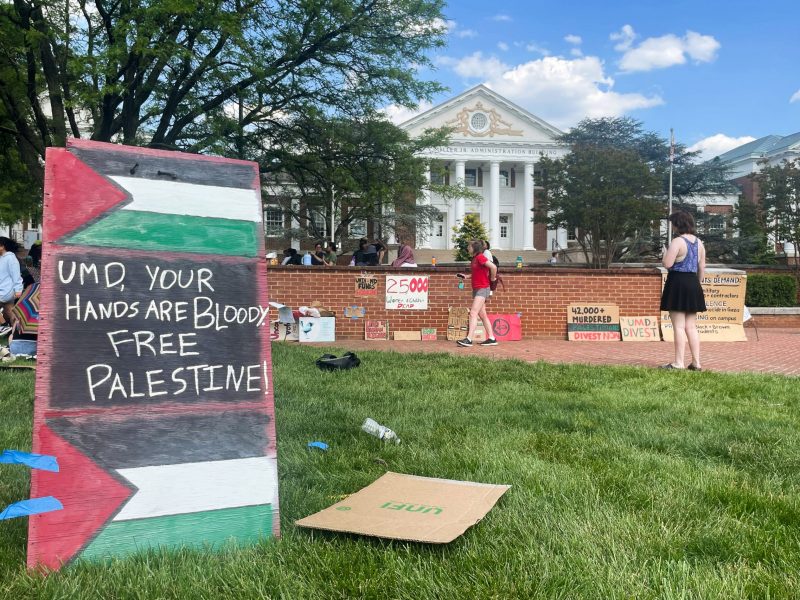By Ashley O’Connor
For The Diamondback
Arfassa Shiseraw wishes more people knew about the killings going on in Ethiopia.
The University of Maryland alumna is Oromo, the largest ethnic group in the African nation. For more than a year, the Oromo people have been protesting abuse and marginalization by the government.
Since November 2015, it’s estimated that more than 400 people have been killed, thousands injured and tens of thousands arrested during protests, according to Human Rights Watch, which noted in its report that “state security forces … used excessive and lethal force against largely peaceful protests.” The rallies began over a development plan that would encroach on Oromo farmland.
“What people can do to help is just spread awareness of the problems,” Shiseraw said.
That was the goal of the Oromo Diaspora Advocacy Association’s cultural showcase and fundraiser Friday night. More than 50 people gathered in Stamp Student Union to celebrate the Oromo culture and promote the fight against human rights violations.
The event included traditional Shewa, Borana and Wollo dancers, as well as a musical performance by Kumera Zakarias and Thalib Razi, which emulated the guitar style of the Oromo people.
Kiya Segni, a junior electrical engineering major at Howard University, said he attended the event because “as a member of Oromo youth, I feel it’s my responsibility to spread the awareness.” Segni came to the United States from Ethiopia for school, and said many here don’t know about the issues the Oromo people face, or even what Oromo is.
“I want people to know that we are a big group and we just want our land and our culture,” he said.
North Virginian Gelane Gemechisa urged people to “just Google the word ‘Oromo,’ because it’s too big of an issue to not know about it.”
Olympic silver medalist Feyisa Lilesa tried to bring awareness to the issue during the 2016 Rio Olympics. As he crossed the finish line, he held his arms above his head in an X, a show of solidarity with fellow Oromo protesters.
Oromo Diaspora Advocacy Association Treasurer Eden Daniel said the Oromo people hold Lilesa in such a high regard “because he talked about an issue that people have known about for years but haven’t talked about.”
“The Oromo people are powerful,” Daniel said, “but they have been in chains and in silence for so long, and with no other means to defend themselves.”



